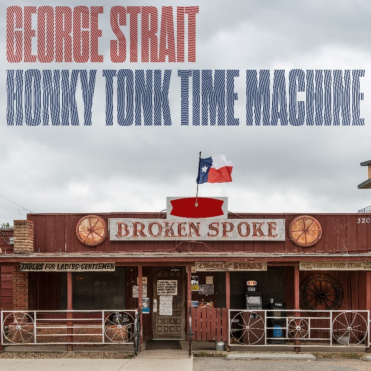Rating: 7/10
Just as a steaming bowl of soup has an understood and unparalleled power to heal and comfort us when we’re sick, a George strait release is a cure for what ails country music, a moment of relief and comfort in these troubled times. When you hear that a new Strait album is on the way, you don’t get worried, as is the case with so many mainstream artists, that he’ll sell out or start chasing trends or take a last stab at radio relevancy with some embarrassing, ill-advised single in lieu of aging gracefully and making the music he wants to make. You don’t worry that he’ll compromise his sound or his principles for cash because he doesn’t need to. He doesn’t need to court radio and younger audiences either; he’s built up a fan base too strong for him to care about any of that. In fact, the only real concern with an artist like strait is complacency, especially after such a long career. But King George hasn’t been complacent at all; he’s continued to select great songs and has also written more and more of his own material in recent years, churning out album after album of substantive songs and showing no signs of slowing down. Honky Tonk Time Machine isn’t a reinvention of the wheel, but that’s never been George Strait’s goal. Like Strait himself, the album is solid, steady, and undeniably, refreshingly country, adding another quality record to his extensive discography.
Like most George strait albums, this is a collection of solid, straightforward tunes with some exceptional moments. The high point of this particular record comes in Strait’s cover of “Old Violin,” a song originally written and performed by Johnny Paycheck. Personally, I’ve been hoping for a studio version of this since I heard him sing it live back in June. It’s a great fit for George vocally, and he really sells it well in terms of emotion. “Sometimes Love” is another strong ballad, this one exploring what happens when someone takes a casual relationship too seriously and accidentally falls in love. The title track is the highlight of the livelier selections, one of those songs that’s just fun to listen to and which would sound great in the kind of bar the song describes. “Codigo” is in a strange position, given that it’s essentially a commercial for the tequila Strait chose to invest in, but it’s actually one of the better songs here both lyrically and melodically. I’d argue that the more pandering reference to the tequila brand comes in “Every Little Honky Tonk Bar,” as they could have chosen any number of liquor brands to “do a shot” and conveniently chose to throw this one in. That’s no knock on “Every Little Honky Tonk Bar”; it’s also one of the stronger tracks on the record. But it seems more fair to criticize this line than the actual song “Codigo,” a catchy little number that we’d all love unconditionally if Strait hadn’t invested in the brand.
This album is not without its flaws. Several of these tracks feel like they could have used another verse or a bridge to tie everything together. “The Weight of the Badge” is the best example of this, a song that feels just short of being great and indeed could have been great if only it had been developed a little more. Some Nights” has some strange rhymes in the chorus, and it certainly seems like this idea could have been explored more deeply as well. And “Sing One With Willie” is fun and all, but ultimately, it’s a novelty and feels like a bit of a missed opportunity for two legends of the genre to give us something truly extraordinary.
But all in all, it’s another solid record from King George. It’s not earth-shattering, but that isn’t George strait. This album is what Strait does best, a solid collection of songs rife with fiddle and steel and piano and boasting smart, substantive lyrics. Strait is probably never going to release the Country exclusive album of the Year, but he’s also never given us a bad record in nearly forty years, and that’s truly a thing to behold. Another slice of solid, straight-up country music from one of the genre’s most special artists.
